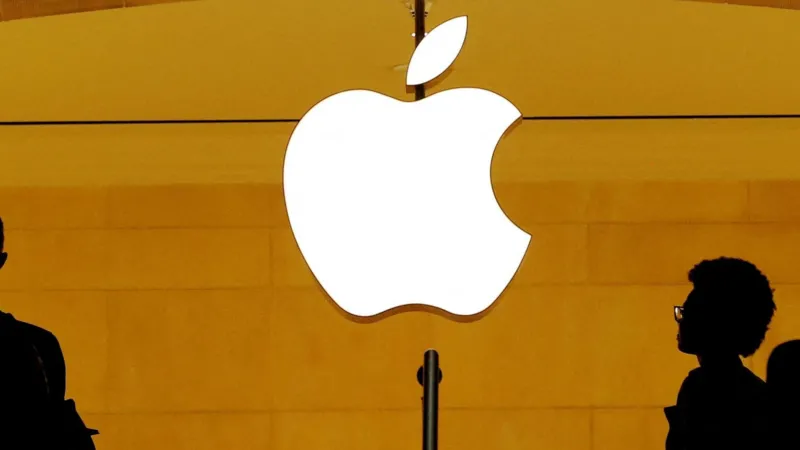In a historic ruling, the European Union (EU) has ordered tech giant Apple to pay €13 billion in back taxes to Ireland, a decision that has sparked widespread debate in both business and political circles. The tax penalty stems from allegations that Apple received unfair tax benefits from Ireland. Allows the company to significantly reduce its tax bill over several years. The EU Commission ruling is one of the largest tax penalties ever imposed on a single company and has reignited the debate about corporate taxation and fairness.
The main issue: Apple’s tax deal with Ireland
At the heart of the issue is Apple’s longstanding relationship with Ireland. For years, the company benefited from a tax arrangement with the Irish government, which allowed Apple to pay significantly lower tax rates on its European profits. The EU Commission found that the deal enabled Apple to avoid paying tax on almost all of its profits in the EU, which it sees as illegal state aid.
According to the commission’s investigation, the effective tax rate on Apple’s European profits was as low as 0.005 percent in some years. This rate, which is much lower than the corporate tax rates paid by most companies, gave Apple a competitive advantage and cut its tax bill by billions of euros. As a result, the EU ruled that Apple must repay the €13 billion saved by these tax arrangements.
Why was Ireland included?
Ireland’s involvement in the case is central because the country’s tax policies have long attracted multinational companies like Apple. Ireland offers one of the lowest corporate tax rates in the EU, set at 12.5%, making it a popular destination for global businesses looking to minimize their tax liabilities. are Apple has notably taken advantage of this by establishing its European headquarters in Ireland.
However, the EU Commission argued that the specific tax deal Ireland offered Apple went beyond the country’s regular tax policies. By granting selective benefits to Apple, Ireland allowed the company to effectively funnel its profits through subsidiaries with little or no taxable presence in the EU. The Commission concluded that this special treatment distorted competition and breached EU state aid rules.
Apple’s response
Apple has strongly denied any wrongdoing and vowed to fight the decision. In a statement, the company called the EU ruling “unprecedented” and argued that it had complied with all Irish laws and paid all taxes owed to it. Apple also stressed that it is one of the world’s biggest taxpayers and that the decision could have serious consequences for investment and job creation in Europe.
Apple CEO Tim Cook called the decision “complete political bullshit“, saying the EU was changing the rules retroactively to target his company. Apple maintains that the profits in question were generated outside of Europe and were subject to US, not European, tax.
Ireland’s position
Interestingly, Ireland also defies the EU order despite standing to receive €13 billion in back taxes. The Irish government has long defended its tax policies and argued that its arrangement with Apple was in line with international tax laws. Ireland’s Ministry of Finance expressed concerns that the decision could damage the country’s reputation as a business-friendly environment and deter future foreign investment.
Ireland has joined Apple in appealing the decision, taking the case to the European Court of Justice. The country insists it should be able to set its own tax rules and the EU order exceeds its authority.
Corporate Tax Implications
The decision has wider implications for how multinational corporations are taxed in Europe. This highlights the increased scrutiny of corporate tax avoidance and the use of tax havens. The case is part of a larger effort by the EU to crack down on unfair tax practices and ensure that big corporations pay their fair share of taxes.
The decision also highlights the tension between national governments and the EU over tax sovereignty. While countries such as Ireland want to retain control over their tax policies, the EU is taking swift action to prevent tax competition that undermines the fairness of the single market.
What happens next?
Both Apple and Ireland are appealing the EU decision, and the case is expected to drag on in the courts for several more years. If Apple is ultimately forced to pay 13 billion euros, it would be one of the largest tax payments ever made by a single company. However, it is also possible that the courts will overturn the decision or reduce the amount owed to Apple.
Regardless of the outcome, the case has already had a lasting impact on how multinational companies approach taxation in Europe. It raises important questions about the balance between national sovereignty and EU oversight and is likely to influence future tax policies across the continent.
The €13 billion tax penalty imposed by the EU on Apple over its Irish tax deal is a watershed moment in the ongoing corporate tax debate. While Apple and Ireland continue to fight the ruling, the case has brought to light the complexities of international tax law and the challenges of managing global business fairly and equitably. As the legal battle continues, it will be watched by governments, corporations and taxpayers alike.
Inspired by bbc news and read more Article Here
